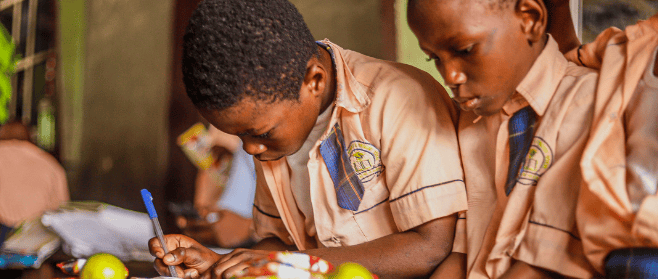Transforming Education for a Knowledge-Based Economy in Rwanda
5/7/20253 min read


In a world where information is currency and innovation drives growth, education is no longer just a social service—it is a strategic investment. For Rwanda, the pathway to long-term prosperity, inclusive development, and national resilience lies in transforming its education system to fuel a knowledge-based economy.
The shift from a subsistence-driven society to a knowledge-powered one won’t happen overnight. But it can—and must—happen. It begins in the classroom, but it ends in how citizens think, solve problems, and contribute to national development.
Why a Knowledge-Based Economy Matters
A knowledge-based economy (KBE) relies on the production, distribution, and use of knowledge and information to drive innovation, productivity, and competitiveness. In such an economy, people are the main assets—not just minerals, land, or agriculture.
For Rwanda, building a KBE means:
Creating home-grown solutions to local challenges
Reducing dependency on foreign aid and imported technologies
Increasing exportable services like software, design, and professional consulting
Empowering youth to innovate, create, and lead
Boosting Rwanda’s regional and global competitiveness
But to do this, education must evolve—from memorization and rigid testing to creativity, collaboration, and critical thinking.
Where Rwanda Stands Now
Rwanda has made commendable progress in education access:
Universal primary education enrollment exceeds 95%
Gender parity has been largely achieved in schools
The government introduced ICT in education and smart classrooms
Higher education is expanding through public and private universities
However, challenges remain:
Quality is inconsistent, especially in rural areas
Teacher training and motivation are still weak
Students often lack soft skills such as communication, creativity, and problem-solving
Limited research output and innovation hubs in higher education
A disconnect between what is taught and what the labor market needs
Key Strategies to Improve Education for a KBE
1. Strengthen Foundational Learning
Quality learning starts early. Rwanda must ensure that all children can read, write, and calculate by the end of primary school—no exceptions. This requires more teacher training, improved learning materials, and ongoing assessment tools.
2. Reform Curriculum for 21st Century Skills
A knowledge-based economy demands skills such as analytical thinking, digital literacy, teamwork, and entrepreneurship. Rwanda’s curriculum must be reoriented toward these outcomes, starting from basic to higher education.
3. Invest in Teacher Excellence
Teachers are the backbone of education. Improving teacher recruitment, offering professional development, providing incentives, and equipping teachers with modern methodologies are critical.
4. Expand Technical and Vocational Education (TVET)
TVET must be elevated from a “second option” to a “first-choice” career path. Strengthening TVET institutions, aligning training with private sector needs, and connecting youth to apprenticeships can accelerate productivity.
5. Promote Research, Innovation, and Higher Learning
Universities must become centers of research and innovation. Rwanda should fund national research grants, strengthen university-industry partnerships, and support knowledge-sharing platforms.
6. Leverage Digital Education
Expand access to digital learning tools, especially in rural schools. Use e-learning platforms, offline digital libraries, and EdTech innovations to democratize learning opportunities.
7. Engage Private Sector & Diaspora
Let businesses inform education policy by defining the skills they need. Engage Rwandans in the diaspora to transfer knowledge, mentor youth, and invest in education-focused initiatives.
Beyond the Classroom: Fostering a Culture of Curiosity
Education is more than school. A knowledge-based economy requires a national mindset that values reading, questions assumptions, and respects expertise. Media, religious institutions, and families must all promote learning as a lifelong habit—not just a childhood phase.
Conclusion: A Smarter Rwanda Begins Now
Rwanda’s aspiration to become a middle-income country by 2035 and a high-income nation by 2050 will not be achieved through natural resources alone. It will be achieved through human capital—through the power of ideas, innovation, and intellect.
A strong education system that develops thinkers, creators, scientists, and problem-solvers will not only transform Rwanda—it will inspire the region and the continent.
The future economy will not be built by machines. It will be built by minds.
Let’s educate those minds. Let’s invest in the Rwanda we want.
